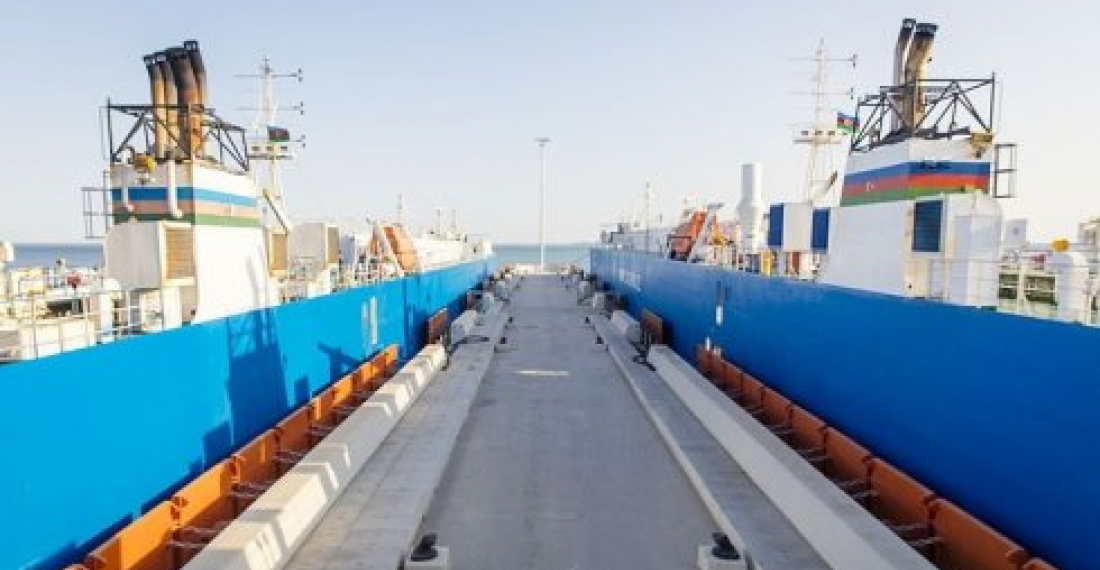At an event in the European Parliament in Brussels, Port of Baku Director-General, Taleh Ziyadov, said legislation to be presented by the end of the year will turn the new facility into a Free Economic Zone with special legal status
Azerbaijan's ambitious plans to turn the Port of Baku into a Eurasian transport superhub were presented at an event in the European Parliament in Brussels on Wednesday (9 November).
Port of Baku Chief Executive, Taleh Ziyadov presented the plans to a gathering of MEPs, diplomats, journalists and experts, hosted by MEPs Gesine Meissner and Ivo Vajgl..
 In his presentation, Cambridge educated Ziyadov told the audience that the Port of Baku, which has existed for many centuries, will be moved from the city centre to a new area near Alat, in Baku's Garadagh district. The area will shortly be given the status of a Free Economic Zone, similar to the Jebel Ali zone in Dubai. The necessary legislation will be discussed by the Azerbaijan Parliament before the end of the year. DP Worlds, the Dubai owned global port operator recently signed an agreement to provide consulting services for the establishment of a free trade zone in Alat.
In his presentation, Cambridge educated Ziyadov told the audience that the Port of Baku, which has existed for many centuries, will be moved from the city centre to a new area near Alat, in Baku's Garadagh district. The area will shortly be given the status of a Free Economic Zone, similar to the Jebel Ali zone in Dubai. The necessary legislation will be discussed by the Azerbaijan Parliament before the end of the year. DP Worlds, the Dubai owned global port operator recently signed an agreement to provide consulting services for the establishment of a free trade zone in Alat.
Taleh Ziyadov said that the aim is to turn the Port of Baku into a hub of hubs between east and west, north and south. But it will not simply be a transhipment centre, but will seek to add value to products in the process. The Free Trade Zone project envisages the development of the transport and logistics industry, the creation of a pharmaceutical cluster, common-use oil supply base facilities, and manufacturing, packaging, labelling and consolidation areas. Products will soon be able to move from China to Scandinavia through a dedicated transport corridor.
The Free Trade Zone will have special legal status, enabling clients to settle disputes through international arbitration. "The project is part of a larger strategy of President Ilham Aliyev, to strengthen Azerbaijan's non-oil economy and diversify it away from hydrocarbons," he added.
Ziyadov said that in 1994, the then President Heidar Aliev had the vision to give to the oil industry unprecedented freedom to operate by signing a production sharing agreement. The creation of a Free Economic Zone around the new Port of Baku is similarly expected to open a new era for Azerbaijan, this time in the non-oil sector.
The event at the European Parliament was hosted by MEPs Gesine Meissner and Ivo Vajgl. In short speeches both MEPs hailed the initiative, and said that the European parliament will follow with interest developments in the project. Also present at the event was the Ambassador of Azerbaijan to the European Union, Fuad Iskanderov.
Source:commonspace.eu
Photo 1: The new Port of Baku at Alat (archive picture)
Photo 2: MEPs Ivo Vaigl and Gessine Meissner, with the Azerbaijani Ambassador to the EU, Fuad Iskanderov and the Chief Executive of the Port of Baku, Taleh Ziyadov, at an event to introduce the work of the new Port of Baku held at the European Parliament on Wednesday, 9 November 2016.







